An Interview with Harold Holzer Regarding His New Book The Presidents vs. the Press
Sara Gabbard: When in relationship to the timing of writing your marvelous Lincoln and the Power of the Press did you decide to write a book which would explore “the Endless Battle between the White House and the Media from the Founding Fathers to Fake News?
Harold Holzer: The idea first struck me during the 2016 presidential campaign, when President-to-be Trump began railing against so-called “fake news.” My original thought was to do a short book about what happened when the phenomenon of partisan journalism collided with changes in communications technology, including periodic presidential complaints about “false” reporting, which are anything but new. But the more I looked into the story, the more convinced I grew that I should explore the entire history of the crucial relationship between presidents and the press, and what it has meant both in safeguarding liberty and forging our unique system of government.
SG: Do you see a point in time at which some topics (presidential families, finances, and promiscuous behavior) were once determined to be off-limits to the press but eventually became “Open Game?”
HH: Yes: I would suggest that it was that Lincoln admirer, Theodore Roosevelt, who first reaped the whirlwind on this one. Of course, cute families and questionable behavior were not new at the White House, but TR tried to have it both ways: he paraded his adorable sons around the mansion and then got angry when the press reported on them, as when the boys misbehaved once by chasing the Thanksgiving turkey along the White House lawn, which only made the reporters more determined to cover them. On another occasion, Teddy said he couldn’t control both the country and his daughter Alice, and that only made Alice more irresistible to journalists than before. Not all bets were off. Just a few administrations later, Woodrow Wilson threatened to punch a press photographer in the face for taking a picture of his daughter riding a bicycle. By then, the White House press corps had grown so large and so competitive—and had its own official headquarters inside the building to boot—that First Families could never again escape the spotlight. Later, the Clinton administration tried to seal the door between the press room and the West Wing—and I mean that literally—but eventually had to re-open it. We’ve come a long way since the days when Mary Lincoln’s outbursts and feuds went largely unreported in the press.
SG: Is it possible to summarize the effect which reporters of the Progressive Era had on future media coverage of presidents?
HH: Journalists had been crusading for pet causes for generations before the Progressive Era. But Theodore Roosevelt actively cultivated long-form magazine reporters to support his reform initiatives. He befriended, encouraged, and confided in them. But later, he dropped them and publicly condemned them for wallowing in negativity—remember, the term he applied to them, “muckraker,” was not meant as a compliment. After TR (again he represents a turning point), working journalists became celebrities as well as investigators: Ida Tarbell, Lincoln Steffens and the like became famous in their own right, the way editors and publishers had once earned fame, and from there the line to Woodward and Bernstein is clear and unmistakable. Yet it would be wrong to say all journalists and editors have been progressive-minded. Franklin Roosevelt never enjoyed majority editorial support from the nation’s newspapers, even running for his second, third, and fourth terms. That’s one reason he spent so much time charming working reporters. Imagine: 998 news conferences!
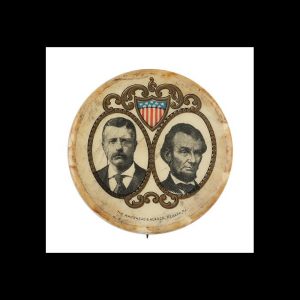
SG: Did the eventual addition of female reporters make a difference in coverage of presidents?
HH: I think so, though it was not easy to get there. Reading the transcripts of FDR’s press conferences, I was pretty shocked by the way he teased May Craig, a groundbreaking female reporter who lasted through the Kennedy era, and late in her career became well-known as the object of JFK’s amusement during his televised news conferences. Craig and Helen Thomas and Sarah McClendon were tough pioneers who deserve enormous credit for opening the all-male press corps to women. And in the beginning, they indeed brought to the game values that many men lacked, or at least had overlooked—like the toll that bellicose government policies take on families. Now, the great thing about the press corps is that the women are just treated (at least by their colleagues) as equal forces, integrated within the professional community (and often the best in the business).
SG: Was there a difference in the relationship between president and press during wartime?
HH: The press would point out that there should be no difference; that they should always have full access to the White House and full freedom to report what they think their audience needs to know. But throughout history, presidents have cracked down on the free flow of information during armed conflicts. The Lincoln Administration, as we know, jailed editors without trial if they opposed enlistment. Wilson created a propaganda unit that flooded the country with patriotic news and posters and withheld sensitive information that it judged would provide aid and comfort to “the Hun.” FDR considered creating an official, government news agency during World War II, but relented. Instead he used his enormous charm and “off the record” policy briefings to keep the lid on sensitive information, created a film propaganda unit that recruited great movie directors like Frank Capra and George Stevens to create memorable documentaries, and reminded the media and public that “loose lips sink ships.” JFK grew so frustrated about press coverage that he considered challenging the fundamental right of the press to any kind of sensitive military information. Yet like most presidents, Kennedy wanted to have it both ways. He demanded that reporters privy to his anti-Castro plans not reveal the Bay of Pigs mission before it occurred, then blamed the press for not warning that the plan was flawed! By the way, it was JFK, my first hero in politics, who gave a speech he wanted to call “The Presidents vs. the Press”—which inspired my title.
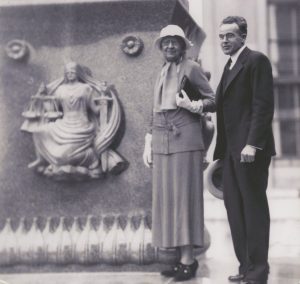
SG: You cover 19 presidents in your book. There are obvious limitations of space in Lincoln Lore. Please comment on the following points for each of the presidents listed:
- Did he deal directly with the press or did he rely on others to handle this task?
- Did he have specific people/ publications he tended to favor? Any he disliked and avoided if possible?
- Did he follow news reports closely? Just glance over a summary? Ignore if possible?
- How did each advance or set back the relationship between president and press?
George Washington
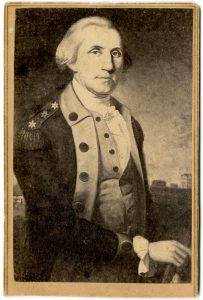
Unless you count Alexander Hamilton, founder of the New York Post, Washington appears to have spoken directly to a major journalist only once—when he summoned an astonished Philadelphia editor to the executive mansion late in his second term and gave him exclusive rights to publish his Farewell Address. In the Founding Era, editors spoke either for the Administration or the opposition—with government officials feeding them what today we would call “talking points.” Washington had his own official “organ,” the United States Gazette, whose editor consistently ballyhooed Federalist policies. He did read newspapers—enough to make him furious enough on one occasion to throw an unfriendly paper to the floor and stomp on it in full view of his astonished Cabinet members. Washington in a sense advanced every relationship he established, simply because he was the first president. Where the press was concerned he encouraged friendly reporting and (privately) denounced hostile reporting, and his successors would expect the same loyalty and more often than not be disappointed. I will add here that Washington’s own Secretary of State, Thomas Jefferson, not only founded an opposition paper—while he served in Washington’s Cabinet—but got its editor a job as a government translator to help support him!
Abraham Lincoln
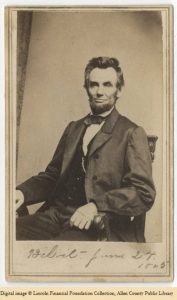
Lincoln befriended Whig, and later Republican, journalists with the same energy and personal touch with which he developed relationships with politicians—and of course, by the Lincoln era, editors were often politicians, and vice versa. Before his presidency, he could count on a friendly, semi-official paper in Springfield, the State Journal, and one in Chicago, the Tribune (whose editors doubled as advisors and whose offices he made his unofficial political headquarters). He also faced hostile Democratic papers that attacked him relentlessly. As president, he gave exclusive news to the Washington editors he liked, and maintained a wary relationship with others, like New York Tribune editor Horace Greeley, with whom he never really got along—beginning with their wary relationship as fellow Congressmen—despite their shared opposition to slavery. By 1864, Lincoln disgustedly likened Greeley to an “old shoe” and cut him off completely. Yet at the same time, Lincoln became so close to Sacramento Bee correspondent Noah Brooks that he weighed making him chief of staff for his second term. Lincoln devoured newspapers from his earliest days as a reader—and only during his presidency did he find he no longer had time to study them, not even a digest that one of his secretaries for a time assembled. He certainly never ignored the press altogether; after all, his administration shut down nearly 200 anti-war newspapers in an effort to clamp down on resistance to enlistment and conscription. A mixed record. In one way, Lincoln set press freedom back with his censorship policies. But he also thrust it forward by using advanced technologies to communicate rapidly, and by devising the inspired idea of issuing his most important private correspondence to the public through the newspapers: think of the Corning and Conkling letters as examples.
Theodore Roosevelt
Teddy Roosevelt simply loved dealing directly with the press. It was TR who staged the first informal press opportunities by inviting reporters to chat with him while he was being shaved in the Oval Office. When they printed something he didn’t like, or thought had been off the record, he uninhibitedly banished them from his circle: he called this purgatory the Ananias Club. TR read voraciously—a book a day, some have claimed, along with every paper he could get his hands on. He was the first “personality” in the White House since Lincoln, and he came to believe that press coverage should focus on him; that he should be the “lede” of every story, or he was unhappy about the press. He certainly opened up the presidency to closer and more intense scrutiny. Whether that was a good or bad thing, his successors faced the music.
Franklin D. Roosevelt
FDR met the big White House press corps twice a week for 12 years, so he was extraordinarily accessible, although he also enjoyed slipping away from Washington on occasion without telling the press. He liked reporters but generally disliked editors and publishers—especially the Patterson-Medill family who controlled anti-Adminstration papers like the Chicago Tribune. He read a batch of newspapers every morning while eating breakfast in bed, and then summoned his press secretary into the room to complain about disappointing coverage. FDR widened access for sure, but also found a way to go around reporters by speaking directly to the people through his “Fireside Chats.” He understood the power of new technologies like radio and newsreels and took full advantage of them. At the same time, he depended on what began as a “gentleman’s agreement” to conceal his disability from the public. Later, his press office aggressively enforced a ban on photographs that showed him on crutches, or struggling in and out of his automobile. As with most presidents of note, the record is mixed.
John F. Kennedy
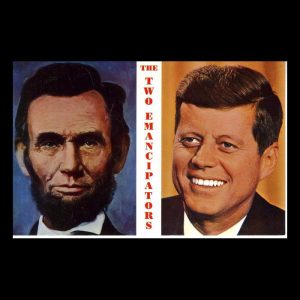
Like the greatest presidential communicators, JFK found a new way to speak directly to the people outside of the confines of the press corps: in his case, the televised news conference. It almost didn’t matter what the reporters asked or broadcast or wrote about his performances on live TV. The events became so popular that JFK was able to make news instantaneously, almost immune from reinterpretation. He basically favored his old press pals (he had once been a working journalist), and he often gave them exclusives. He read newspapers and magazines hungrily, got angry at some coverage in the Roosevelt mode, but kept pushing his agenda with favored journalists. In the final analysis, I would have to say that JFK set traditional press coverage back by inventing new techniques to make news. In addition, because of the look-the-other-way attitude that still reigned during the Kennedy era, the public never learned about his questionable personal behavior, his fragile health, or the medications he took to keep functioning. For decades afterwards, especially after Nixon, the press demanded, and got, almost everything it asked for; now we seem to have returned to a period in which a president needn’t provide full disclosure about personal matters. Should it be so? That’s for the press and the president to hash out, and for the public to ultimately decide.
Harold Holzer, a winner of the Lincoln Prize, is the Jonathan F. Fanton Director of the Roosevelt House Public Policy Institute at Hunter College.
